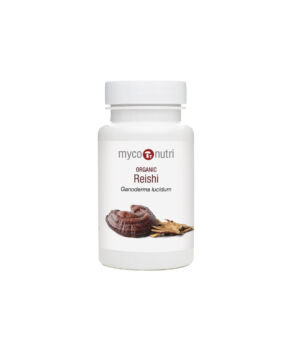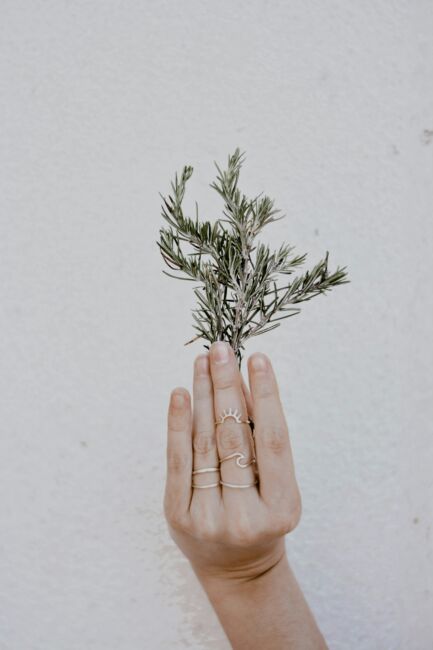Stress & Herbal Adaptogens
Here at Therapy Organics, we continually aim to educate and empower our customers to be at the very best of their health. Recently, we were delighted to welcome back Medical Herbalist, Katie Pande from Pukka Herbs to talk with us on Stress and Herbal Adaptogens. The audience gave us some great feedback on this extremely interesting insight into Ayurvedic Herbal Medicine and how we can use traditional knowledge to regain our natural balance. We wanted to share this short article to cover a summary of some of the topics covered on the night.
What is Ayurvedic Herbal Medicine?
Ayurvedic Herbal Medicine is a specific form of herbal medicine using a vast dispensary of Indian traditional herbs in combination with an understanding of a person's specific constitution. It is using the knowledge of this constitution to allow the practitioner to tailor specific herbs to help find balance and homeostasis.
The constitution or 'dosha' as it is specifically referred to in Ayurvedic Medicine is split into three specific sub-categories, known as Pitta, Kapha and Vata. A person may be dominant in one of the doshas or may be a mix of two or them or even a little of all three.
Firstly, Pitta which is associated to the element of Fire. As fire would suggest, the characteristics of the Pitta dosha are driven, energetic, dominant, competitive and they have a strong presence in a room of people. They are also hot people so may sweat more, have an abundance of energy and may be prone to high blood pressure.
Secondly, Kapha is the exact opposite to Pitta! The Kapha dosha is associated to the elements Earth and Water. These people show traits of being grounded, chilled, relaxed, have a warm personality but with cold hands and feet and thrive with routine. In situations of confrontation, where Pitta will rise to the argument, Kapha will pull away from the situation to avoid this energy.
Our third dosha is Vata which is associated to the element Air. Like the wind, they are changeable in energy and also mood. They may be easily flustered and also be prone to poor sleep. They love change and movement, they are creative and inspiring. However, they can be easily distracted and the type of people that forget their keys, cards, phones and can run up and down the stairs a few times before they have everything they need to leave the house!
An Insight Into Adaptogens
Now we understand a little about the constitution types but what are adaptogenic herbs? Adaptogenic herbs are specific herbs that can help the body adapt and find balance. This is particularly useful when it comes to physical and emotional stress as the adrenal glands and nervous system are particularly involved here. The adrenal glands produce adrenaline in an immediate response when we are exposed to stress to allow our body to react to danger . The longer term stress hormone cortisol is also produced by the adrenals. Cortisol is involved in our sleep wake circadian cycle and should be suitably elevated in the morning so we are awake and ready for the day and should deplete gradually throughout the day so we are then tired and ready for sleep.
When we are stressed over a prolonged period of time, the adrenals are producing too much adrenaline and in turn cortisol. As these hormones are elevated over our natural level, this can affect things like our energy, blood sugar balance, sleep and also our ability to cope with stressors. We get into a situation where a tiny stressor is enough to be the straw that broke the camels back! Where we have chronic and longer term stress, the adrenals become extremely tired and exhausted, a situation known as adrenal fatigue. This is where someone can become extremely fatigued and immunity is compromised as a response to stress.
So let's get back to how this relates to our specific doshas. In relation to sleep, Pittas are the type of people that don't need much sleep and can cope on 5-6 hours as enough to reenergise. Kaphas are night owls and could happily have a lie in. Vatas have fluctuations in energy throughout the day. They end up exhausting themselves and are the most prone to insomnia. They are naturally very light sleepers and can get easily distracted and wake with movements, noise or light.
In relation to response to stress, Pittas get feisty and aggressive whereas Kaphas avoid the confrontation. Vatas can get anxious and panicky. They are the type of people that worry about how much needs to be done but can't focus on one thing to get anything done.
When they are ill, Pittas will fight through and continue on whereas Kaphas will happily sit on the sofa and sleep or relax until they are better. The Vata type will often become anxious about not being able to work and make themselves more ill by not fully resting and exhausting the adrenal glands. It often takes them a long time to fully recover.
The types of conditions that Pittas are most prone to would be anything inflammatory or hot such as High Blood Pressure. Kaphas will suffer from sluggish conditions such as slow digestion, low energy and depression. Vatas may be more likely to suffer from anxiety, anxious digestion, sensitivity, allergies and also dry skin.
An Overview of Some Adaptogenic Ayurvedic Herbs
Tulsi, also known as Holy Basil, is a particularly grounding herb and replenishing and restorative for those who are continually ill, particularly those with Vata dominance. Tulsi is thought to be good to bring balance to those with racing minds and for those who struggle with sleep, again linking it to use for Vata doshas. This plant is particularly good for focus and meditation and traditional mala beads are made from the bark of this plant. The phytonutrient compounds of Tulsi have the ability to cross the blood brain barrier and may help to strengthen damaged nerve cells. The use of this herb is generally associated to anxious or emotional conditions and has been studied for its application in dementia and Alzheimer's Disease. Tulsi may also be a valuable herb for concentration during times of study and is thought to bring resilience during stressful times.
Tulsi is an extremely valued and protected herb with long traditions associated to the goddess of wealth and planted within shrines outside villages to bring prosperity.
Ashwaghandha has some traditional names such as 'strength of a stallion' due to its notoriety of being a physical herb, helping to rebuild a damaged nervous system hence its potential use in Multiple Sclerosis and Fibromyalgia. It may also be helpful to adapt during physical changes like the menopause. It is mainly known for its restorative effect during prolonged periods of stress and is helpful to provide balance in all three doshas.
Shatavari is known as 'she who has one hundred husbands' signifying its connection to fertility. The doctrine of signatures is a traditional look at herbs by botanists to see how they look, feel, where they grow and how they taste to assess similiarities to the body and how they may be used medicinally beneficial.
Shatavari can grow in soils where nothing else can grow and its huge root stock can access nutrients from the soil and also nourish the soil to make it fertile to enable other plants to grow. As well as fertility, it may be useful to support the stress response, particularly for women. Recent scientific understanding has further investigated how it can balance oestrogen and progesterone on a DNA level hence its potential use for any hormonal imbalances such as PCOS, fibroids and menopausal support. Its roots are cooling and juicy hence this particular herb may be of more benefit to balance Pitta and Vata doshas.
Ginseng is known for its uplifting properties hence its use for the Kapha dosha. It's root stock sits above the ground and resembles a person standing up with two legs to the ground and arms raised. Panax ginseng is its latin name, with the word Panax coming from Panacea or 'cure all'. It was thought traditionally to be a herb of immortality and a stimulant of oxygen supply to the heart and lungs hence its use for Kapha types.
Licorice is known as an adrenal tonic to boost the mood and replenish the nervous system. It is particularly used traditionally for building up core immunity for those who are continually coming down with illness. With its affinity for the lungs, this herb may be beneficial for dry and irritated coughs. However, as quite a cooling herb, it is less suited for Kapha types.
Reishi is not a plant but a mushroom. Mushrooms are actually part of their own kingdom which are closer genetically to humans than to plants. Known as a medicinal mushroom and blood red in colour, it has been heavily researched for its use in immune conditions such as cancer. Its compounds such as beta glucans and triterpenoids stimulate immune cells to action with a specific response in the bone marrow. As well as boosting immunity, Reishi is immune modulating in the long term. However, it doesn't have a particular short term response so in acute situations such as colds and flu, herbs such as Andrographis or Echinacea may be more appropriate.


















